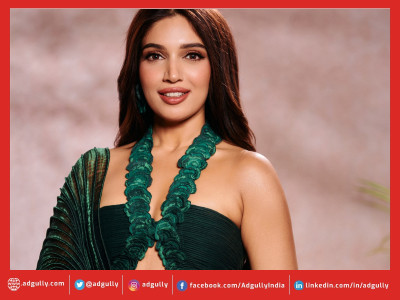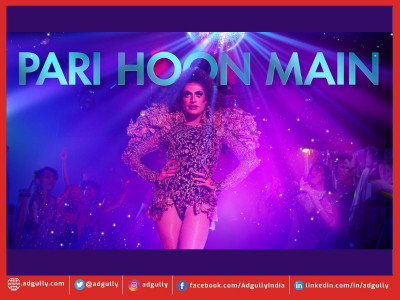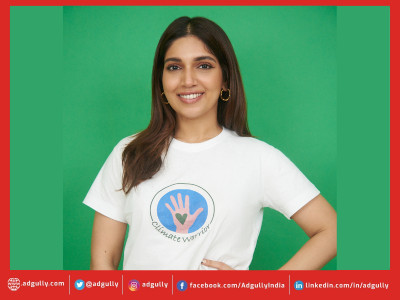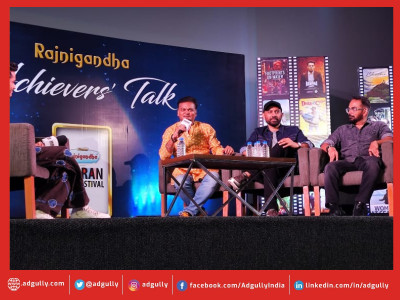Bumble launches new campaign aiming to close ‘The Romance Gap’
Bumble, the “women-first” dating app, has launched a campaign in India to raise awareness of the ‘Romance Gap’ - the discrepancy in behaviour expected from men/masculine presenting people and women/feminine presenting people when dating and in relationships. This campaign is part of Bumble’s efforts to empower people to create healthy and equitable relationships.
Research from the popular dating app found that while 82% of Indian adults state that equality is important between people who are dating or in a relationship, the overwhelming majority (82%) say that when it comes to romantic relationships, there are different expectations and expected behaviours based on your gender identity.
Despite positive strides being made towards equality, traditional gender roles and expectations are still very present, and even accepted, in dating in India. Bumble’s new research has found that these expectations are so ingrained in our society that the majority (66%) of people say traditional gender roles lead us to behave in a way that is less true to who we are and 60% of people claim it makes dating and relationships more stressful and/or difficult.
Often, behaviours that are labelled romantic for men are negatively labelled for women. These discrepancies show up across dating and relationships in different ways, with both men and women feeling considerable pressure to behave in a certain way.
The research identified several key themes, with the overriding finding being that there is still a long way to go in redefining gender roles in romantic relationships and dating:
- Men are still expected to take the lead: When it comes to taking the lead and advancing the relationship, on matters such as asking the other person out, making the first move, or initiating the first kiss, there is still pressure on men to be responsible for making the big moves. 39% of people surveyed state that men are expected to take the lead in dating and relationships, while only 21% think women should do so. For men, more than 1 in 4 (28%) have felt pressured to take the lead.
- Men are expected to say ‘I love you’ first: More than 1 in 3 (37%) people surveyed state that men should be the first to say those three little words and express their love first, while only 21% think women should profess their love first. Interestingly, in India, only 34% state that men are expected to ask their partner to marry them.
- Men are expected to be the breadwinners and earn more money: Men still feel pressure to earn more than their partners and play the role of the breadwinner, in spite of women making advances in their careers and professional lives in India. Half (50%) state that men are expected to earn more money, while only 1 in 4 people (26%) think women should do so.
- Women should not appear desperate: More than 1 in 4 (28%) people surveyed state it’s important that women are expected to avoid appearing too keen, clingy, attached or desperate.
- Women are changing their behaviour: Amidst all these expectations, it’s no surprise that more than 1 in 3 (39%) women have changed their behaviour to make someone feel more powerful or comfortable.
- Men should not appear to care or show emotions: Men are still expected to hold their cards close to their chest when it comes to displays of emotion, and we expect them to appear not to care. 29% say men are expected to avoid appearing to care too much, or show too much emotion whereas 26% say this is also expected of women.
- Men should take the lead sexually: The research found that Indians still lean conservatively when it comes to conversations and openness around sex and intimacy.26% say men are expected to be sexually direct and discuss their sexual wants or preferences, but only 22% say women are expected to do so.
Samarpita Samaddar, India Communications Director, Bumble said, “The Romance Gap is a new term, but many of us will know the feeling. Those moments of waiting for them to take the lead, wondering if sending the first text or asking someone out on a date makes you appear too keen or desperate, worrying about being judged for being too direct, opinionated or too old. By not questioning or critiquing the Romance Gap, we leave ourselves locked into gender roles that more than half (67%) of Indian adults say makes it difficult to build healthy equal relationships.
With this campaign, we aim to start a conversation about what equality means in dating and relationships. We can’t change societal norms and expectations in one day, but we need to accept it exists so that we can challenge it, and eventually start to close the Romance Gap. Bumble’s aim is to empower people to engage in conversations about equality in dating and facilitate in building healthy and equitable relationships. Now more than ever, is the time to start dating on your own terms and at your own pace, making your first moves.”
While these expectations exist, there is a desire for change. People (53%) feel strongly that in an ideal world it is important to maintain respect and equality in long term relationships and around 2 in 5 (41%) women state that it is important to address equality early in dating and relationships.
As part of the campaign, Bumble has partnered with popular actor Bhumi Pednekar in India to spotlight some of the gendered inequalities women face in dating and relationships.
















Share
Facebook
YouTube
Tweet
Twitter
LinkedIn